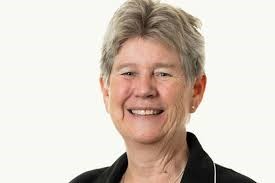Thank you to Chris Thomas, Safeguarding & Service Standards Co-ordinator for Trivallis and our new erosh Trustee for this Guest Blog helping to highlight the often hidden issue, relating to the domestic abuse of sheltered housing tenants.
Recently, Jane Hutt the Minister for Social Justice in Wales unveiled the Welsh Government’s new Violence against Women, Domestic Abuse and Sexual Violence (VAWDASV) strategy, highlighting the six aims that the government will set to help end the abhorrent abuse women face.

In the strategy Jane Hutt says:
“I want to make Wales the safest place to be a woman. We have achieved a lot in Wales by prioritising Violence Against Women, Domestic Abuse and Sexual Violence (VAWDASV), collaboration and innovation such as the Violence Against Women and Girls, Domestic Abuse and Sexual Violence (Wales) Act 2015 from which the duty to produce this strategy flows.
However, there is more to do to realise our ambition, so the approach we take must advance the successes we have seen and find new ways to energise and co-ordinate our activity.
Renewing our approach is necessary because, as the events of the last few years have shown, women are still murdered and abused by violent men. Home is still a place of fear for some, made so by those who they should be able to trust, but who instead abuse the power they hold. Women and girls still have their sexuality and identity controlled by a perverse sense of honour or a desire to exploit it.
Whilst we were shocked by the murder of Sarah Everard and Sabina Nessa at the hands of a stranger, many more women die each year at the hands of violent men who are known to them and many 1000s again suffer violence and control that blights their lives and opportunities. To change that we must tackle the perpetrators, we must support the survivors and we must change the culture of misogyny and harassment that feeds the abuse.
Women and men can be affected by VAWDASV but men form the vast bulk of perpetrators. It is clear that the biggest difference we can make is to tackle male violence. Women’s safety will not come from changing women’s behaviour it will come from changing the culture that fails to tackle toxic masculinity. In order to do this, we have extended the scope of our strategy to include street and workplace harassment, we will work with survivors and we will create space for a dialogue amongst men about what masculinity means in a world without VAWDASV.”
The new VAWDASV strategy outlines six key aims that the Welsh Government, alongside its partners in the public and third sector will commit to.
- Challenge attitudes to violence against women, domestic abuse and sexual violence by raising awareness of its impact and consequences.
- Increase awareness of the importance of safe, equal and healthy relationships.
- Hold those who commit abuse to account and help people who carry out abusive or violent behaviour to change.
- Prioritise early intervention and prevention
- Provide training to professionals so they are equipped to give effective, timely and appropriate support to victims and survivors.
- Provide all victims with equal access to properly-resourced, high-quality support services, wherever they live in Wales.
Trivallis supports all of the above actions, and we are working hard towards achieving them. Our recent DAHA accreditation supports the above work and shows that Trivallis is committed to supporting all those affected by domestic abuse.
What are your plans to support older people, when it comes to domestic abuse?
In a recent erosh survey regarding domestic abuse in sheltered and retirement housing, the majority of respondents identified that there was no specific domestic abuse policy within their organisation. Respondents felt that domestic abuse strategy and procedure was integrated into overarching policies relating to safeguarding, anti-social behaviour, bullying and harassment.
Respondents also commented that their domestic abuse training was part of safeguarding training and where specialist training was provided, this tended to focus on younger victims rather than older people.
Respondents felt that more information and advice was needed to help staff support older people experiencing domestic abuse. Respondents also cited a lack of information about how to respond to incidents, who to report incidents to and how to access external support for themselves.
Interestingly the most prevalent form of abuse cited was financial. Respondents felt this was partly due to older people being more susceptible to financial abuse from people known to them, and partly due to the increasing number of residents living with dementia. Respondents felt that dementia increased vulnerability to abuse, in particular financial abuse from family members.
erosh, in partnership with Dewis Choice and Aberystwyth University, has created a Good Practice Guide for domestic abuse and older people in sheltered and retirement housing and it can be accessed by erosh members here:
If your organisation would like further support or training regarding domestic abuse and older people in sheltered and retirement housing, please get in touch at: info@erosh.co.uk.
Go back